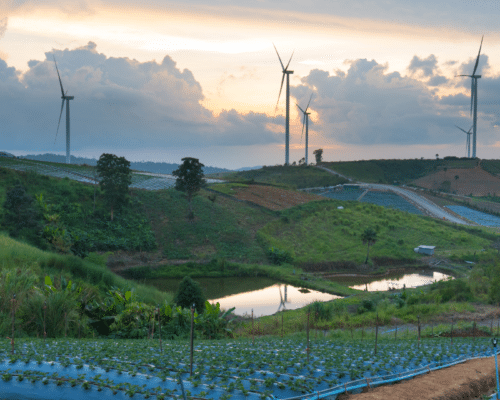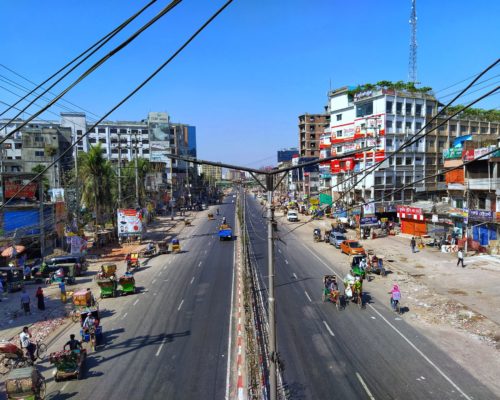Indonesia to Experience a Green Jobs Boom, But Policy Changes Integral
29 February 2024 – by Viktor Tachev Comments (0)
Indonesia plans to play a leading role in the global clean energy transition by actively participating in key areas of the global supply chain for green technologies. As a result, the country is likely to experience a boom in the demand for green jobs in Indonesia. While the active workforce and youth are interested in participating in the industry, roadblocks exist. The task of the new leadership is to remove these barriers through adequate reforms.
The Prospects For Green Jobs in Indonesia
As per the IEA’s 2023 World Energy Outlook, Indonesia will become one of the leading solar panel exporters globally. The country also aims to become a key player in electric vehicle and battery production. Meanwhile, It has also been establishing itself as a key cog in the global supply chain for metals like nickel, aluminium and iron, integral to various green technologies.
The current leadership has introduced various measures to accelerate the growth of the domestic green technology industry. For example, President Joko Widodo’s administration banned the export of nickel ore, critical for electric-vehicle batteries, pushing international companies to invest in processing nickel in the country. Chinese companies have already set up factories to process nickel ore and turn it into EV batteries as well as other products like stainless steel.
The likely new president, Prabowo Subianto, who will be sworn in in October, has already pledged to continue his predecessor’s mineral export ban and support the domestic battery-making industry. He also plans to back the country’s gradual transition away from coal.
These developments promise that Indonesia will experience a huge demand for green jobs. During Indonesia’s Green Jobs Conference 2023, the deputy for the Population and Employment of the National Development Planning Agency (BAPPENAS) estimated that the green economy in Indonesia could create 15.3 million jobs in 2045.
Young People’s Interest in Green Jobs on the Rise
Recently, Suara Mahasiswa (SUMA) of the University of Indonesia, the oldest student press institution in Indonesia, and the Yayasan Indonesia CERAH, a nonprofit organisation, conducted the first survey in the country capturing student aspirations regarding green jobs. The results revealed that young people between 18 and 25 consider the climate crisis a major problem and actively support the need for urgent action.
Moreover, they believe almost unanimously that they have an essential role in overcoming the climate crisis’ challenges through careers in green jobs.
The Progress to Date
BAPPENAS targets 1.8 million workers in the green economy sector by 2030 across various industries, including power, EV, land restoration and waste. To meet the target, Indonesia’s leadership has started preparing its workforce through various initiatives.
Among them are the LCDI, an approach pursuing low-carbon development, sustainable natural resource management and poverty alleviation while maintaining economic growth, launched in 2017. Another is the RPJMN, which accelerates the shift to a green economy through sectoral policies on clean energy, land restoration, waste management, green industry development and sustainable coastal and marine environment projects.
The government’s green economy strategy contains three building blocks: low-carbon economy, blue economy and energy transition. The government plans to implement the green transformation through its energy transition, clean transportation, sustainable forests, sustainable land and agriculture, sustainable water resources, circular economy and blue economy.
While the initiatives targeting the mobilisation of the workforce to enter the green economy have been mostly lacking to date, things have started to change in recent years. For example, the country has partnered with Germany to develop green jobs in the renewable electricity sector through the ISED project. The initiative aims to engage the public and private sectors in equipping human resources with the necessary skills to support the industry’s growth and bridge the skills gap.
To date, the ISED project has trained over 1,250 participants across various renewable energy technologies. It also aided in the certification of 148 vocational school teachers and the development of modules to enrich education and training programs.
Through initiatives like these, Indonesia expects to achieve its target of having renewables account for 31% of its energy mix by 2050 by facilitating more involvement from the domestic sector and local workforce.
Indonesia’s Green Jobs Sector Faces Various Barriers
While the desire of university students to pursue green jobs is evident and is projected only to grow in the future, the journey won’t be seamless, with some notable obstacles ahead.
Respondents in SUMA’s survey perceive green jobs to be underpaid and without promising career prospects. Furthermore, they don’t feel well prepared to enter the industry, identifying a significant gap in their green skills.
Officials also recognise that existing challenges, including the young population, skills mismatch between graduates and the labour market’s needs, lack of sustainability principle implementation in many industries, and more, currently hinder the growth of the green jobs sector.
To overcome these challenges and make the green industry more welcoming to the young workforce, the new leadership has several key priorities to address, including aligning the academic curriculum with the market’s needs and focusing on capacity building and training around the climate agenda. Reforming training courses in the field of clean energy and introducing new labour market-oriented educational programs are other crucial areas of focus.
Furthermore, young Indonesians expect the government to assist by providing adequate training for mastering green skills, supplying in-depth information about green jobs and organising green job fairs.
ILO: Indonesia Needs Strong Policy Reforms to Meet Green Jobs Demand
According to the International Labour Organisation’s (ILO) report, Green Jobs and Just Transition Policy Readiness Assessment in the Energy Sector in Indonesia, the green transition will trigger substantial employment changes in various related sectors.
The organisation notes that while the government has successfully established the green economy framework and developed policies defining the green agenda, including developing fiscal plans and aligning the transition with Indonesia’s NDC, overall policy readiness regarding employment is lacking.
For example, no policy or regulation defines green jobs or covers related employment considerations. Furthermore, the ILO identifies significant gaps in green skills development, active labour market policies, and labour protection measures.
As a result, it calls for increased focus on preparing the labour market through effective structural changes.
Defining Green Jobs
The organisation recommends establishing an operational definition of green jobs as a crucial first step. The move is intended to help ensure a high-level, economy-wide understanding of green jobs and a sectoral definition. To maximise the move’s efficiency, the ILO suggests collaboration between BAPPENAS, the Ministry of Manpower, Statistics Indonesia (BPS), sectoral ministries and workers’ and employers’ representatives.
The ILO also advises the development of a comprehensive sectoral analysis for Just Transition planning, which covers sectoral employment impact and labour protection, focus sectors, fiscal incentives, green jobs potential and skills needs assessment.
An increased focus from the public and private sectors on data collection for labour market analysis must provide more precise and effective measures that leave no one behind.
Creating Supply and Demand For Green Jobs
The ILO considers linking skills programs with the green jobs and energy transition agenda, as well as establishing plans for re-skilling and up-skilling workers that are willing to enter the green technology industry, a crucial enabler for improving the green job supply and demand ratio. The same goes for communities where livelihoods are directly affected by the transition process. In this way, they can also successfully transition.
The organisation urges this process to be conducted through formal and non-formal education systems and include underrepresented labour force groups, such as women and youth.
The ILO also advises the design of social protection policies and active labour market policies to support workers and communities affected by the energy transition. It also suggests aligning them with existing measures to avoid overlapping and to improve the existing deficiencies in the overall system.
Ensuring the segments of the workforce affected by the transition have appropriate access to job opportunities, training programs and job counselling also remains important.
Nurturing Social Dialogue and Policy Coherence
The ILO recommends that all stakeholders, including policymakers, the private sector and the workforce, have adequate knowledge of the just transition. They must also engage in social dialogue. The results of these dialogues should become a central focus of the just transition, the organisation notes.
It also stresses the importance of ensuring policy coherence among sectors regarding the green economy and energy transition agendas.
Indonesia’s Green Transition Promises a Bright Future, But Government’s Role Remains Critical
Since an energy transition isn’t only a move towards a more sustainable energy system but a complete economic and social transformation, it drives significant structural changes. In the case of Indonesia, the notable coal dependence means these changes will be even more significant compared to other countries in the region. In that sense, the role of policymakers in ensuring a welcoming environment is critical.
The prerequisites for Indonesia’s energy transition to succeed are there. The country has vast resources and the potential to develop a flourishing domestic green technology sector, as well as a young and motivated workforce. The new leadership should build on that by promoting active collaboration between stakeholders and introducing enabling policies that stimulate green jobs supply and demand.
by Viktor Tachev
Viktor has years of experience in financial markets and energy finance, working as a marketing consultant and content creator for leading institutions, NGOs, and tech startups. He is a regular contributor to knowledge hubs and magazines, tackling the latest trends in sustainability and green energy.
Read more





